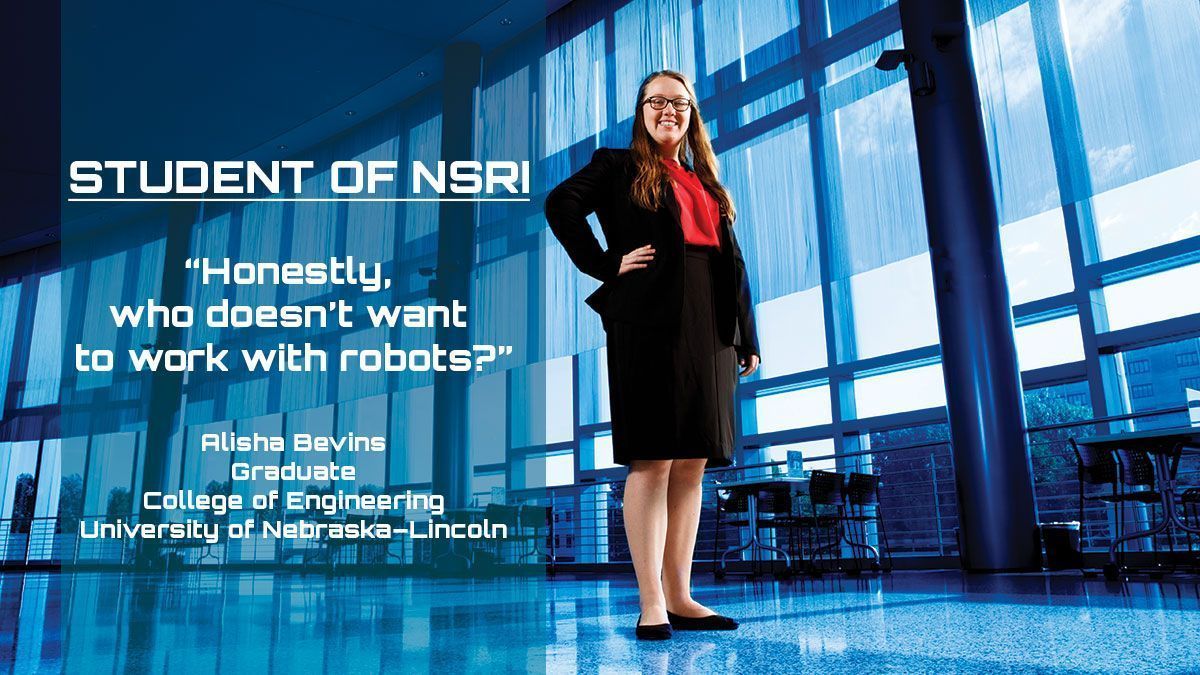
CSE graduate student Alisha Bevins was recently interviewed about her research in the NIMBUS Lab by the National Strategic Research Institute:
Alisha Bevins is graduate of the University of Nebraska–Lincoln in mechanical engineering and now a graduate student in computer science.
Beginning in January 2018 Alisha served as an undergraduate research assistant on a project funded through the National Strategic Research Institute at the University of Nebraska. The project involves the development of a drone that can deploy sensors into holes it drills into soil. Her role was to develop mechanical additions for the UAV. Extended project description and videos available via the NIMBUS Lab.
Q: What was most interesting about working on this project?
A: You get to think of the weirdest things, make them and put them out in the world. I never would have thought that I would work on something like this — it just wasn’t on my radar.
Q: What did you learn throughout the process?
A: It’s really about solving many small problems — continuing to build on successes over time. You just keep taking it a step further and a step further. I don’t think we’ve thought of a problem we haven’t been able to solve yet, and that’s a really interesting situation to be in.
Q: How has this work influenced your career?
A: It developed my skills for a future full-time mechanical engineering job. But working on this team with computer science researchers and students showed me what was possible when you bring these disciplines together. This project is the reason why I’ve gone on to graduate school.
Q: Why did you take this opportunity?
A: Who doesn’t want to work with robots? This opportunity, this environment in the NIMBUS Lab has given me so much joy and so much growth in my life. Every undergraduate student should have a research experience like this.
Q: What is it like to tell your friends, family and peers that you’re working on a project for the Department of Defense?
A: It’s one of those things that my parents love reminding me, especially when I would get maybe a bit frustrated — how cool it is to be working on a project for the government. You become a little desensitized to it after awhile because we work on so many amazing things.
Q: Who has supported you in this work?
A: It’s just a great group of people — a great team. Dr. Carrick Detweiler, Dr. Brittany Duncan and Dr. Justin Bradley. I have really appreciated building these types of relationships with national leaders in this work.
Read the full article here.